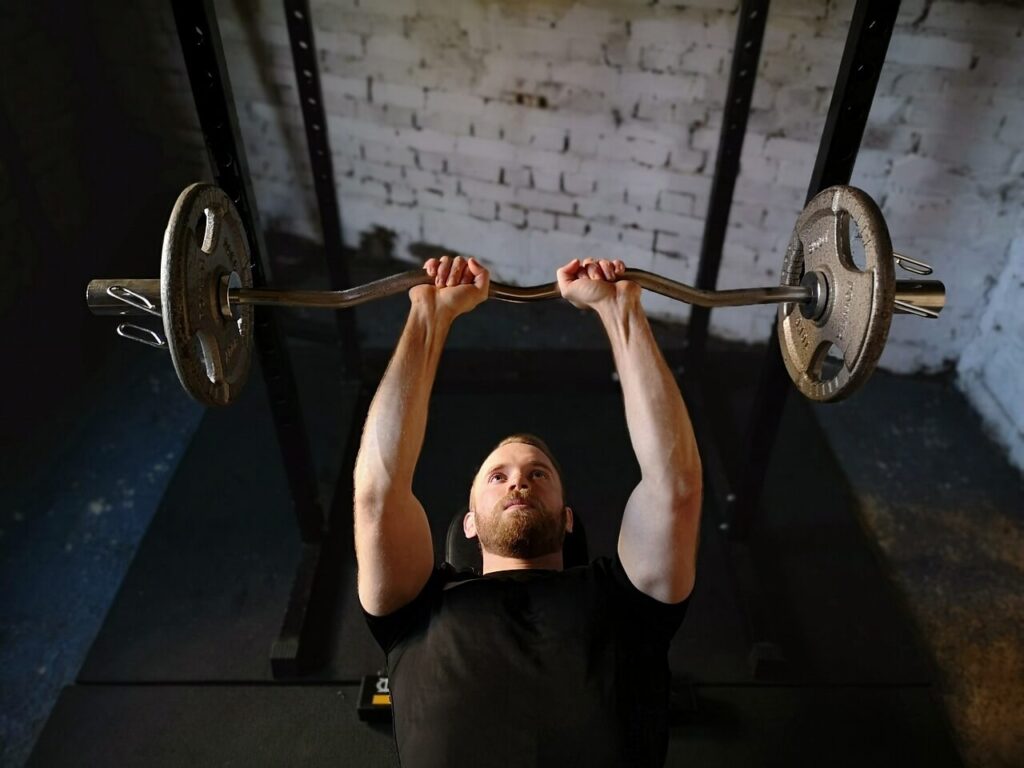In today’s fast-paced world, staying fit and healthy has become more important than ever. As we age, our bodies go through various changes, making it crucial to pay attention to our fitness routines. Unfortunately, many people unknowingly make mistakes in their fitness journeys that can have adverse effects on their bodies, especially once they hit the milestone of 30 years. In this article, we will explore the 10 fitness mistakes that can potentially ruin your body after the age of 30 and provide valuable insights on how to avoid them.
Avoid These 10 Fitness Mistakes After 30 to Protect Your Body and Health
Mistake 1: Neglecting Strength Training
Strength training is vital for preserving muscle mass, maintaining bone density, and promoting a healthy metabolism. Unfortunately, many individuals overlook or underestimate the importance of strength training as they age. Engaging in regular resistance exercises, such as weightlifting or bodyweight workouts, helps combat muscle loss and promotes overall strength and vitality.
You may also like.What is Better: Exercise or Yoga?9 Effective benefits
What are 10 Benefits of Doing Yoga Everyday?10 Effective Benefits
10 Best Benefits of Yoga For Physical Health
How Many Times A Week Should You Do Yoga? Yoga Practice A Complete Guide
Mistake 2: Skipping Warm-up and Cool-down
Failing to warm up properly before a workout and neglecting to cool down afterward can lead to injuries and hinder recovery. Warming up prepares your body for physical exertion by increasing blood flow to your muscles, raising your body temperature, and loosening your joints. Similarly, cooling down allows your body to gradually return to its resting state and aids in the removal of metabolic waste products.
Mistake 3: Overdoing Cardiovascular Exercise
While cardiovascular exercise is essential for heart health and endurance, excessive amounts can have detrimental effects. Overdoing cardio without incorporating other forms of exercise can lead to muscle loss and a slower metabolism. It’s crucial to strike a balance by combining cardio workouts with strength training and flexibility exercises to maintain overall fitness.
Mistake 4: Ignoring Flexibility and Mobility Training
Flexibility and mobility training are often overlooked, yet they play a significant role in maintaining functional fitness and preventing injuries. Regular stretching and mobility exercises improve joint range of motion, enhance posture, and reduce muscle imbalances. Make sure to allocate time for flexibility training to keep your body agile and injury-free.
 Mistake 5: Poor Nutrition and Hydration
Mistake 5: Poor Nutrition and Hydration
A well-balanced diet is crucial for supporting your fitness goals, especially as you age. Poor nutrition can undermine your workout efforts, hinder muscle recovery, and negatively impact overall health. Consuming a diet rich in whole foods, lean proteins, fruits, vegetables, and healthy fats provides the necessary nutrients for optimal fitness and body composition. Additionally, hydration is often overlooked but plays a pivotal role in maintaining good health and fitness.
Mistake 6: Pushing Your Body to the Limit
While pushing yourself during workouts can be beneficial, there is a fine line between challenging yourself and overexertion. Pushing your body beyond its limits can lead to an increased risk of injury, diminished performance, and mental exhaustion. It’s important to listen to your body, incorporate rest days, and avoid overtraining to maintain a healthy and sustainable fitness routine.
 Mistake 7: Lack of Variation in Workouts
Mistake 7: Lack of Variation in Workouts
Doing the same exercises and routines repeatedly can lead to a plateau in progress and reduced motivation. Introducing variety into your workouts is crucial for continuous improvement and preventing boredom. Incorporate different types of exercises, equipment, and training methods to challenge your body and maximize results.
Mistake 8: Not Listening to Your Body
Your body is a powerful source of feedback during workouts. Ignoring pain, discomfort, or signs of overtraining can lead to long-term injuries and setbacks. Pay attention to your body’s signals, modify exercises as needed, and seek professional guidance when necessary.
 Mistake 9: Neglecting Rest and Recovery
Mistake 9: Neglecting Rest and Recovery
Rest and recovery are essential components of any fitness routine. Adequate sleep, active recovery, and scheduled rest days allow your body to repair and rebuild, preventing overuse injuries and optimizing performance. Prioritize rest as an integral part of your overall fitness plan.
Mistake 10: Lack of Consistency
Consistency is key when it comes to maintaining fitness after 30. Skipping workouts, inconsistent training schedules, and yo-yo dieting can hinder progress and make it difficult to achieve your goals. Establish a realistic and sustainable routine that you can stick to in the long run.
By avoiding these ten fitness mistakes, you can set yourself up for success and maintain a strong, healthy body well into your 30s and beyond.
Conclusion
Maintaining optimal fitness after the age of 30 requires awareness and a commitment to avoiding common mistakes. By incorporating strength training, warming up and cooling down, diversifying your workouts, listening to your body, and prioritizing rest, recovery, and proper nutrition, you can ensure a vibrant and healthy future. Remember, it’s never too late to start or make positive changes to your fitness routine.
FAQs
Can I start strength training in my 30s if I've never done it before?
Absolutely Starting strength training in your 30s can bring numerous benefits. Begin with lighter weights and gradually progress to avoid injury.
How many rest days should I have per week?
The number of rest days varies based on individual factors and training intensity. Generally, one to three rest days per week is recommended to allow for proper recovery.
Is it necessary to stretch before and after workouts?
Yes, warming up before exercise and stretching afterward can help prevent injuries, improve flexibility, and aid in recovery.
Can I still improve my fitness after the age of 30?
Absolutely With consistent effort, proper nutrition, and a well-rounded fitness routine, you can continue to make progress and improve your fitness at any age.
How do I stay motivated to exercise regularly?
Find activities you enjoy, set realistic goals, and vary your workouts to keep things interesting. Additionally, finding an exercise buddy or working with a personal trainer can provide accountability and support.



 Mistake 5: Poor Nutrition and Hydration
Mistake 5: Poor Nutrition and Hydration Mistake 7: Lack of Variation in Workouts
Mistake 7: Lack of Variation in Workouts Mistake 9: Neglecting Rest and Recovery
Mistake 9: Neglecting Rest and Recovery

